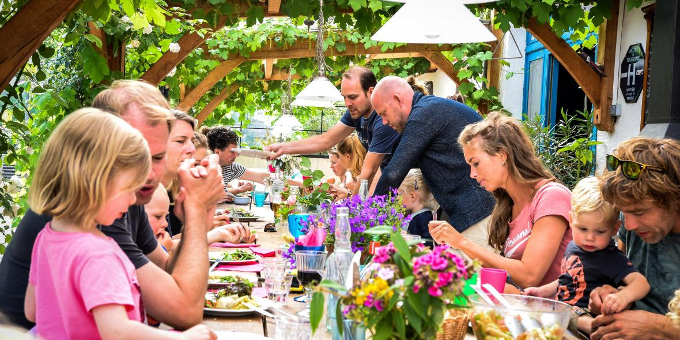There are a lot to know on French B&B. Check out this blog post to learn more practical tips on French Bed and Breakfast.
Please see our packages and don’t hesitate to request a stay in a small french bed and breakfast, and contact us by email for special offers, adapted Covid-19 cancellation terms and detailed recommendations. This package has a beautiful bed and breakfast in Honfleur. This one here has a luxury bed and breakfast in Bordeaux.
Hôtellerie in France has a long history, and of course inns are older again. Chambre d’hotes have roots back to the establishment of the hotel industry, but they are different again. Many of these Chambres d’hotes (Bed and Breakfast) function somewhat outside the modern competitive world of franchises, SOPs, KPIs or national chains. As they are such a key link in the French tourism chain, I thought it was high time to highlight the history, quirks and qualities of staying in a bed and breakfast in France.
The article is outlined as follows:
· The history of ‘hotels and inns’ in France
· What is the difference between a hotel and a B+B?
· What to expect when you stay in a small hotel or bed and breakfast
With the rise of the Christianity in the Middle Ages came the increase in the popularity of monasteries and abbeys. Unlike their Roman counterparts, they offered a bed and a supper to all travelers. Later on Inns started to appear all around Europe in many different locations. They were with small rooms, often had stables and were always attached to the owner’s home.
However, by the 17th century, larger coaching inns became very popular. Their responsibilities included hosting travelers, offering them food, changing their tires and tending to the horses. Later, the rich started to travel more, creating income for the inn owners, and this developed into the hotel industry. Since their expectations were elevated the inns or hotels started to expand and become more luxurious, larger and naturally moved away from being attached to the owner’s home.
In the early 20th century, a gap in the market was seen, to provide lodgings of a lower cost, in a rural setting. This spurned the birth or ‘re-birth’ for bed and breakfasts, as we know them today. The modern usage of the term ‘Chambre d’hôtes’ dates to 1912 when the Touring Club de France (a type of car and bicycle touring club) encouraged a way to discover rural france, and further after 1946 when the government encouraged opening these small guesthouses to as a way to encourage rural development during a period of rural-urban migration.
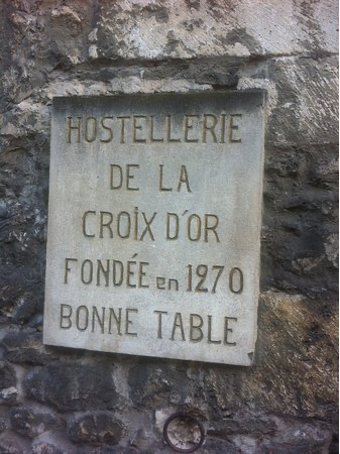
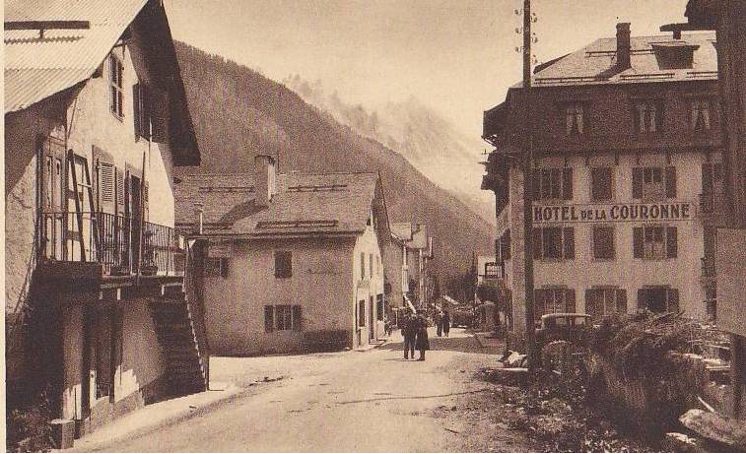

Most hotels in France are government rated. They are inspected and rated with respect to their level of comfort, amenities, and quality of service. French hotels are approved and checked by official authorities, and classified into seven categories: no star, 1*, 2*, 3*, 4*, 5*and Palaces. A Chambre d’hotes however, has no star-system, and sees the guests be staying overnight in the owner’s home and their stay will also include breakfast. There are only few regulations to comply with. For instance, a Chambre d’hotes can only have 5 bedrooms and accommodate a maximum of 15 people. You may call it a Maison d’hotes if there is more than one room for rent.
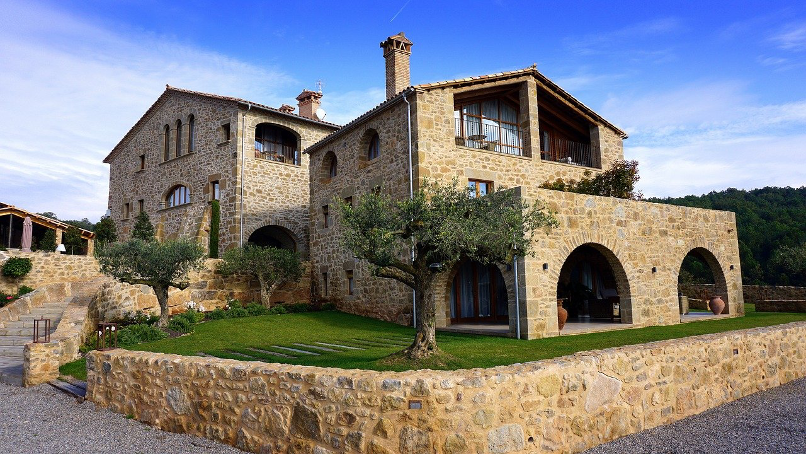
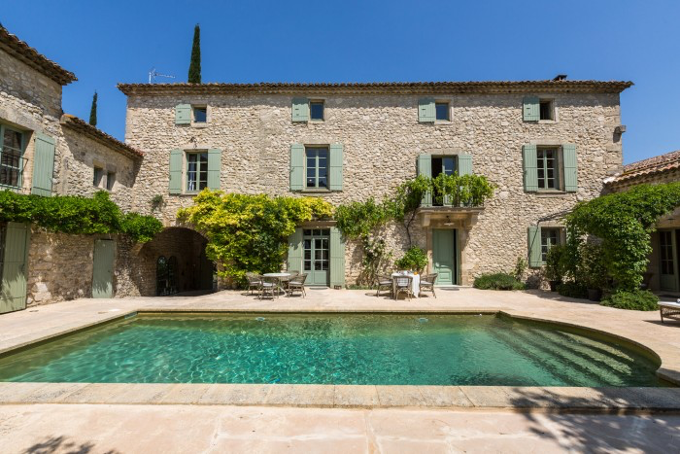
Table d’hotes is providing dinner to their guests. Once again there are some regulations to comply with. For instance, the owner of the table d’hotes must only offer one menu, preferably composed of local products. This means that you cannot offer two starters, two main meals and three desserts. Meals should be taken at the family table with the owner (though for a multiday stay this may not always be the case). Finally, dinner cannot be served to the passing trade or you will have to comply with restaurant regulations. Oh and what is a hôtel particulier? This is a townhouse of a grand sort, comparable to the British townhouse or mansion. It is often free-standing, a rare and exclusive site amidst the dense apartments of a modern French city. They have nothing to do with tourism and in the main, do not host paying guests!
This section the crux of my article, and what I hope you will take on board before your stay.
So on arrival, it is always best to stick to the opening check-in hours, or call ahead and inform of your arrival time. This might sound strange, but these small hotels and bed and breakfasts are so small that they do not have a fulltime person in the lobby. This is because naturally the staffing is very minimal. Secondly these small accommodation places do not often have an open lobby; so in some cases you might be on the street, facing a locked entrance door, and be without the code. Or you might just catch the staff at work, carrying firewood, cleaning rooms, fixing dinner. This is all worst case scenario thinking but it is good to know just in case. Please note that small hotels nearly never have a lift, and often have rooms on the first floor (this means 2nd floor for Americans) or higher. Be ready to walk up, but your bags will be carried for you if you have any concerns.
It is good to note that rooms in small hotels are not at all standard. You might or might not have a TV, depending on the vibe of the owner. The dimensions of one room to another is nearly always going to be very different; there are simply not all rooms of say 215ft² each. There are sometimes quirks regarding the beds too. If they are Double beds it might be impossible to change to having two single beds (as they don’t have enough room to move beds into and out of the hotel), or in fact you might find a twin room has beds stuck together to make a double! This is still comfortable, and you can’t feel the seam, and of course there is only one sheet.
This is often very very personized, based on the traits of the owner. Be prepared for surprises that are outside the box. There may be less equipment or strange pieces of art on the walls, but at least you know you are somewhere different. The decoration is not from head office, or based on a cookie-cutter approach from an interior design student intern. We do know one bed and breakfast in Amboise that has a very (read: VERY) pink room, and I know it is not to everyone’s taste, but I still recommend it to our guests. Another spot I know near Uzés has very prominent nude paintings on the walls, again, it is their taste, and they want to be that well; There is no censorship from HQ.
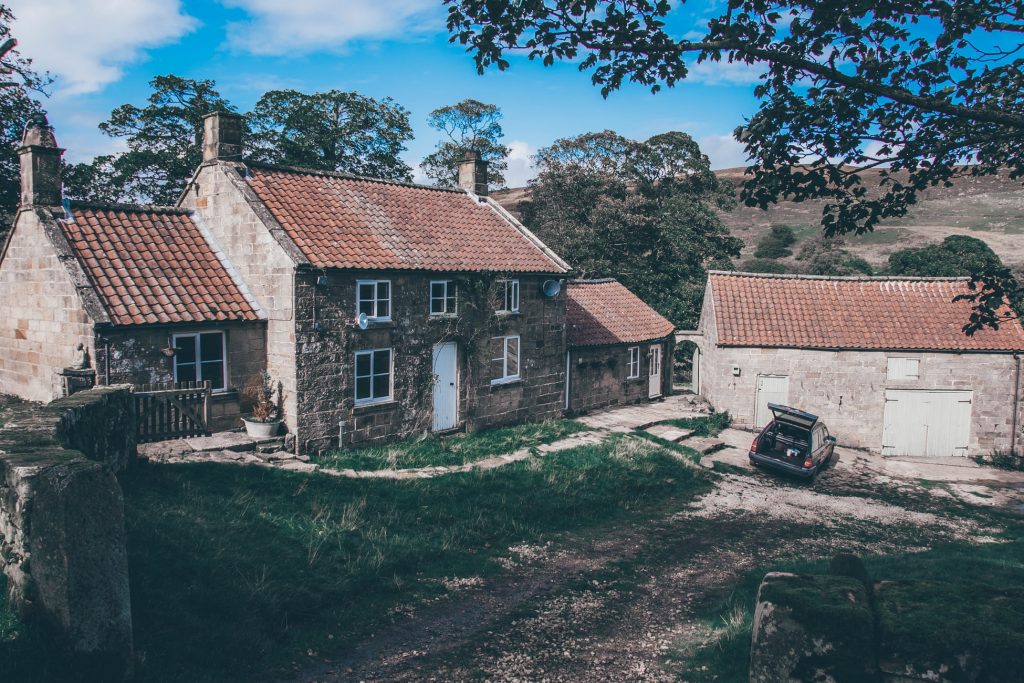
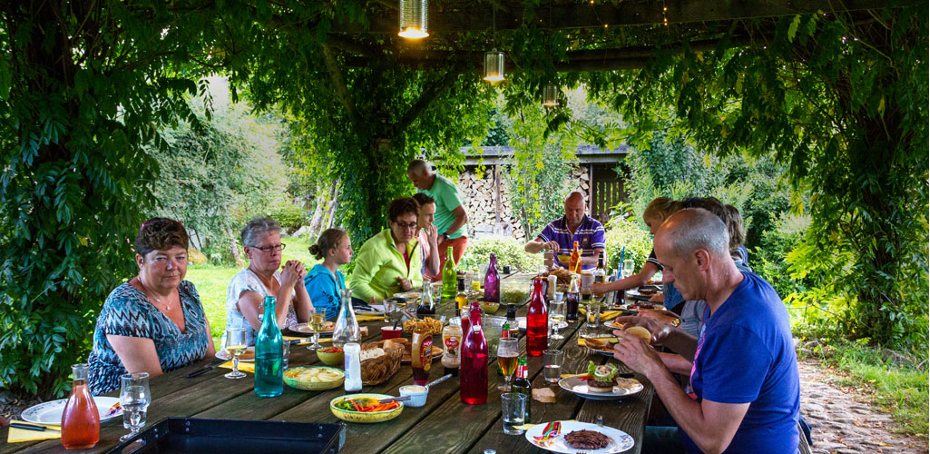
Now we have arrived at the crux. What is special and unique in small hotels is the obvious work ethic of the owners. Small hotels and bed and breakfasts simply cannot hire staff, so they do it themselves: check-in, valet, concierge, chef and often clean as well. The best thing about this is that even during a short stay you can build a relationship with the owner and forge a bond. There implication is total. Recently I was in the Luberon, staying in what I would call an average quality hotel. The best part about the hotel was the dynamic husband and wife team who had just purchased the hotel; they explained their respective backgrounds in 5-star hotels in Switzerland and London, and their wish to have something of their own; They are young and motivated, with that story and their personality I can only see the place improving in leaps and bounds. THEY made my stay there special, and did what a member of staff could rarely make possible. I never needed to say I am in room 1328, or anything anonymous like that, as I was recognized and they recalled my room number.
A restaurant or dining hall does not exist in a B+B and rarely does so in a small hotel either. It is not a requirement. Normally in a B+B you will take breakfast together on a common table (remember B+B max out at 5 rooms). The evening meal might be possible (as a fixed-choice menu) table d’hôtes, or host’s table, or there might instead just be advice to choose a nearby restaurant.
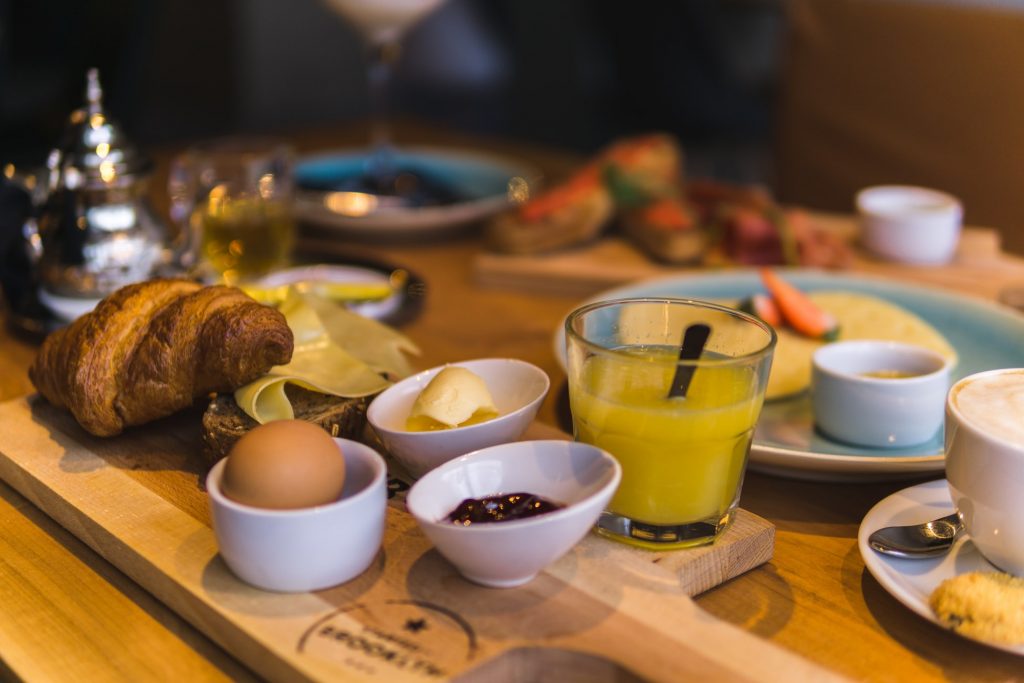

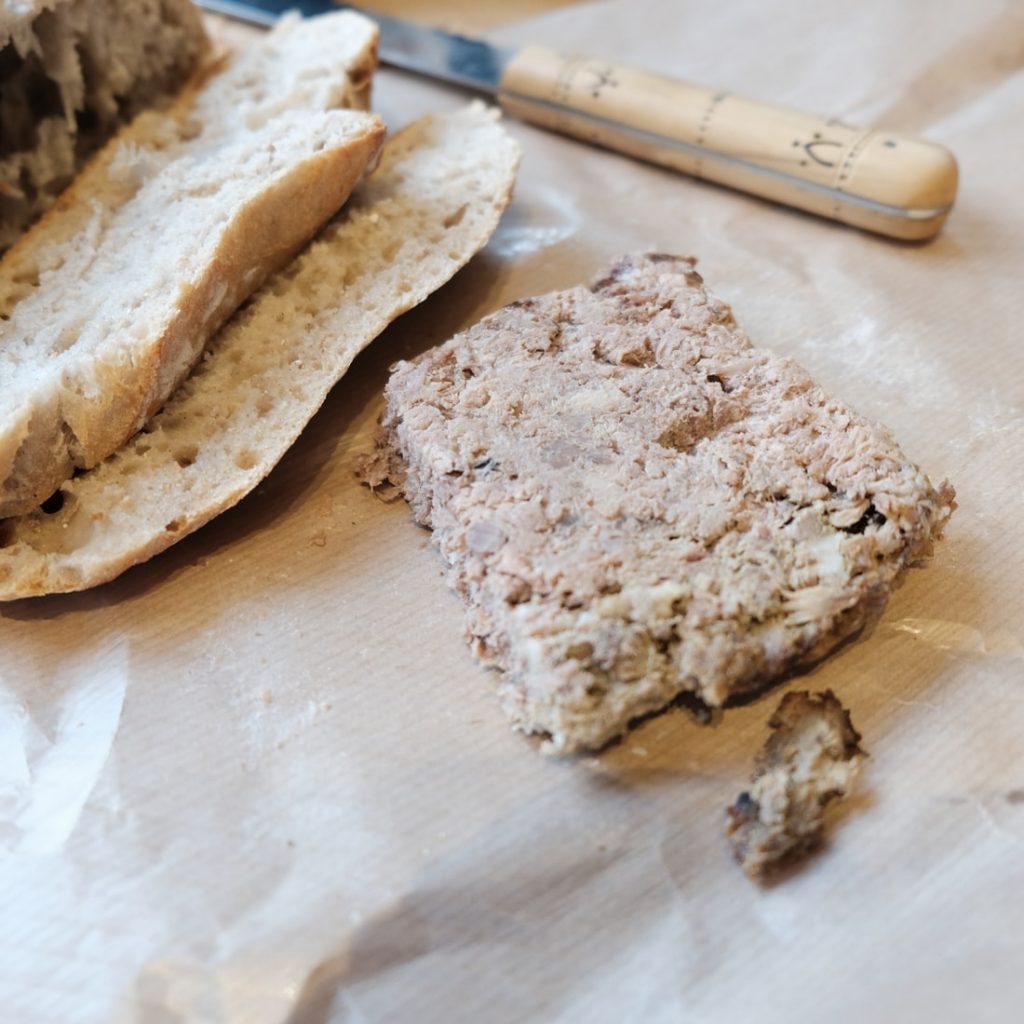
Being in a small place does not mean low on comfort. The best lodgings we use are easily of the quality and service we would expect in a 5-star hotel. The furnishings are top notch, the linen is from French companies, the breakfasts are fresh and creative. The prices can reach 350€ a night for a room or more.
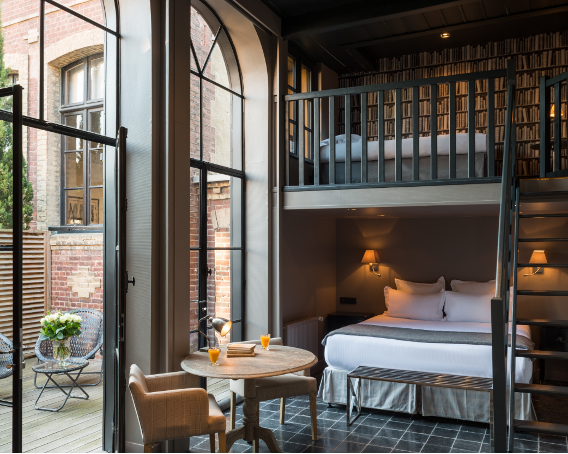
Don’t expect to have already seen a bed and breakfast before as they are always different from each other and this is a large part of the charm (the other is that you are getting better value for money in most occasions). The uniqueness comes from the connection with the staff, who is invariably also the owner and their whole hearted connection to the hotel and its surroundings.
If you enjoyed this blog post about practical tips on French bed and breakfast I recommend you to read this post to learn a few useful phrases “en français”. This might help you to prepare your future visit in France.


